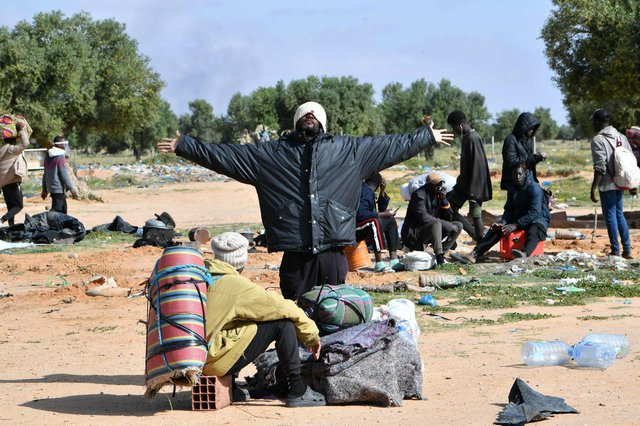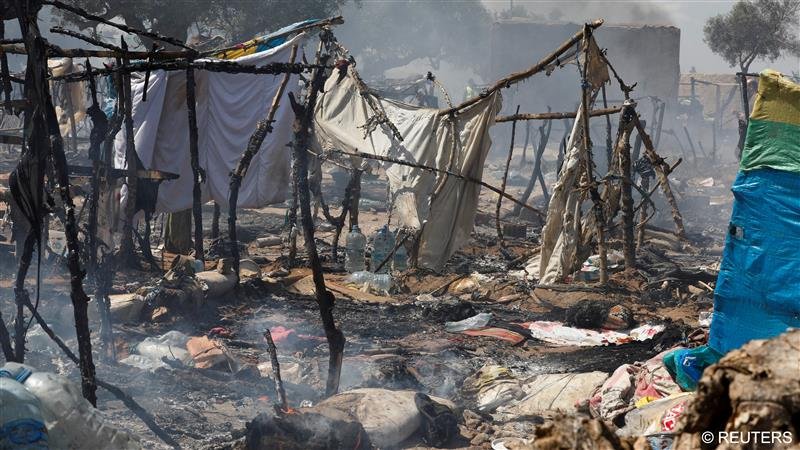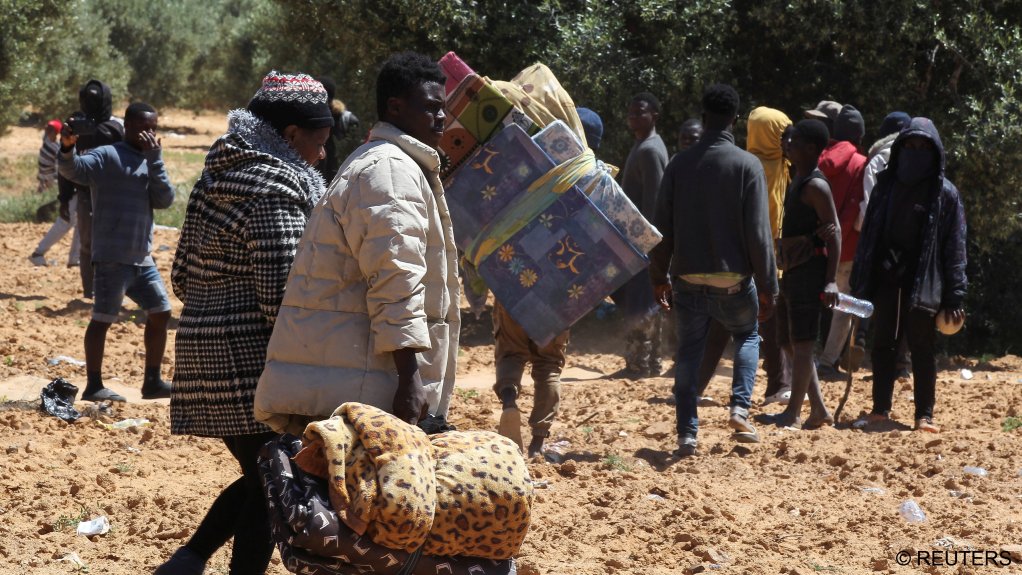Officials in Tunisia have burned down the tents of thousands of irregular migrants at an informal camp to the north of the port city of Sfax. The government says it is pursuing a policy of leaving migrants no other option but to accept voluntary returns to their home countries.
The deliberate destruction of the informal tents in El Amra, located about 30 kilometers outside the port city of Sfax, comes as the Tunisian government continues to pursue a heavy-handed approach dealing with irregular migrants.
In a video posted by one of the affected migrants on X, black smoke is seen billowing out of tents in almost every direction of the site amid an overall atmosphere of fear and anger among the migrants.
The man filming the video repeats multiple times in French that "everything is now destroyed" and that none of the former residents of the informal camp know where else to go now.
Authorities have systematically been trying to dismantle the camp in El Amra since the beginning of April, resulting in the uprooting of thousands of migrants in recent weeks already, according to the spokesman for the National Guard, Houcem Eddine Jebabli.
Another 3,300 migrants were now also forced out after the latest efforts by the government involving the destructive use of fire to raze the tents at the informal camp to the ground.
One of the migrants who was forced to vacate his tent this week told the AFP news agency that life had become increasingly difficult in the two years that he had been in Tunisia, and that after the latest development, many just wanted to return to their home countries.

Stranded in Tunisia
The informal camp has long been a thorn in the side for authorities and locals alike since migrants first started building tents and other informal structures there about two years ago.
Situated around olive groves and known as "Kilometer Marker 33," residents have been asking for the land to be cleared amid growing animosities between migrants and locals.
Many of the migrants there have been stranded in Tunisia for a long time. With tighter controls on the Mediterranean Sea, their hopes of reaching Europe are being dashed daily, effectively resulting in many of the migrants becoming stranded in Tunisia.
After signing a 255-million-euro agreement with European Union last year to further limit irregular migration to Europe, Tunisia is likely only going to become a more restrictive place for migrants.
Read AlsoTunisia: Hundreds of migrants intercepted at sea are nowhere to be found

A divisive strategy to discourage migrants
Tunisian President Kais Saied, known for his often fiery, anti-migrant rhetoric, meanwhile seeks to continue pushing migrants into further despair to get them to agree to voluntary return to their home countries with the help of the International Organization for Migration (IOM).
The IOM said on Thursday that it had organized the return of 7,000 migrants in 2024 and that so far this year, over 2,300 migrants had also been sent back home using IOM channels.
National Guard spokesman Jebabli said that the Tunisian government was working closely with the IOM and "with the countries of departure, of welcome as well as the international NGOs to ensure voluntary repatriation."
"It's the strategy of the State that Tunisia not be a place of settlement or transit for illegal migrants," he added.

Read AlsoTunisia claims strategy for migrant voluntary repatriation is working
with AFP
